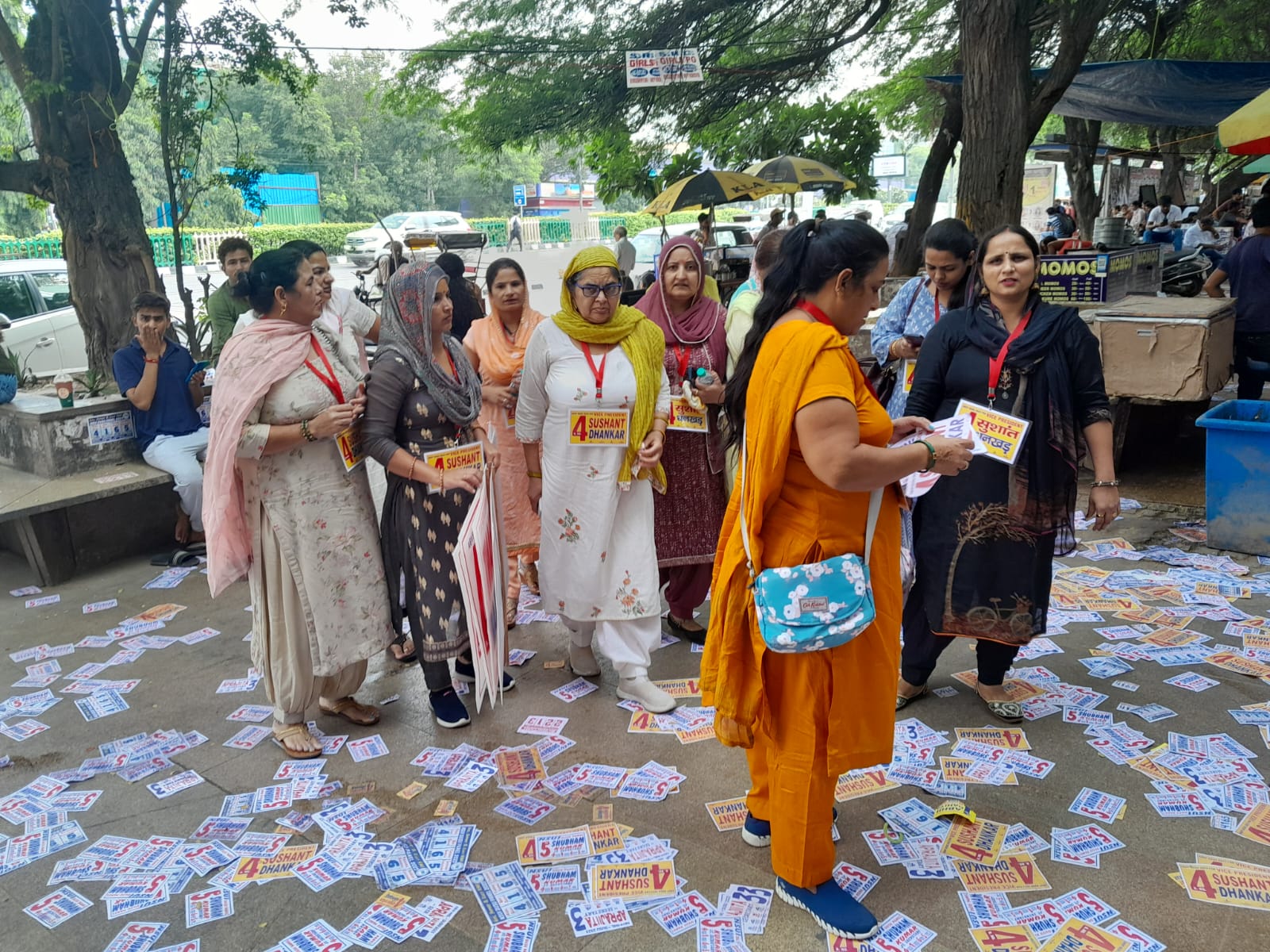Vote counting for the Delhi University Students Union (DUSU) elections commenced on Saturday, and the outcomes for all four central panel positions – president, vice-president, secretary, and joint secretary – are anticipated to be disclosed shortly.
There are 24 candidates competing in these elections.
DUSU elections last occurred in 2019, as they couldn’t be held in 2020 and 2021 due to COVID-19, and disruptions to the academic calendar prevented them in 2022.
Chander Shekhar, the chief election officer for the polls, reported a voter turnout of 42 percent, with approximately one lakh students eligible to vote.
Though the voting percentage surpassed the 2019 turnout of 39.90 percent, it fell short of the nearly 11-year-high figures of 2018, which saw turnouts of 44.46 percent and 2017, which had a 42.8 percent turnout.
Elections for the central panel at 52 colleges and departments were conducted using EVMs, while college union polls were done using paper ballots.
Key issues for students ranged from concerns about fee hikes, affordable accommodations, enhanced security during college fests, and access to menstrual leaves.
These elections serve as a means for various political party-backed organizations to gauge the sentiment of young voters. This year’s elections are particularly significant as they took place just months before the Lok Sabha polls.
The Congress-affiliated National Students’ Union of India (NSUI) claims to have won union elections in 17 day colleges, while the RSS-backed Akhil Bharatiya Vidyarthi Parishad (ABVP) asserts victory in 34 colleges.
The ABVP, NSUI, CPI(M)-backed Students’ Federation of India (SFI), and the CPI(ML)-Liberation-linked All India Students’ Association (AISA) all fielded candidates for the four central posts. In the 2019 elections, the ABVP won three of the four seats.
DUSU serves as the primary representative body for most colleges and faculties, with each college holding its own annual student union elections. (With inputs from PTI)





